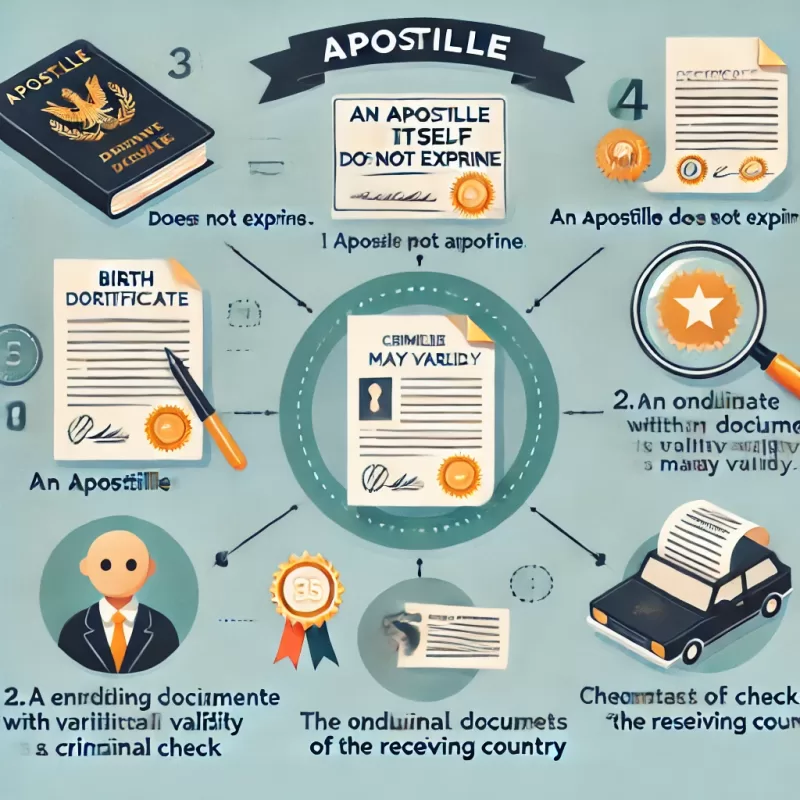In the realm of international documentation, the term "Apostille" frequently surfaces. Originating from the Hague Convention of 1961, an Apostille is a certification that authenticates the origin of a public document for use in another country. Despite its widespread use, many are left wondering about the longevity of an Apostille: does it expire?
Understanding the Apostille
An Apostille certifies the authenticity of the signature, the capacity in which the person signing the document has acted, and, where appropriate, the identity of the seal or stamp which the document bears. It is issued by a designated authority in the country where the document originated. For example, in Canada, this might be Global Affairs Canada or one of the respective provincial authorities such as British Colombia, Alberta, Saskatchewan, Ontario and Quebec.
Does an Apostille Expire?
The simple answer is no, an Apostille itself does not expire. Once issued, it remains valid indefinitely. However, this does not mean the document to which it is attached has the same permanence.
Validity of the Underlying Document
While the Apostille remains perpetually valid, the underlying document's validity can vary. For instance, a birth certificate or a diploma typically remains valid for a lifetime, but other documents, such as a criminal background check or a certificate of good standing, may only be valid for a certain period, often six months to a year. If the document itself expires or becomes outdated, a new document must be obtained, and a new Apostille will need to be issued for the new document.
Practical Considerations
When dealing with Apostilles, it's essential to consider the requirements of the receiving country. Different countries have varying rules regarding the acceptable age of documents. For example, some countries might accept an Apostilled document only if it has been issued within the past six months, regardless of the indefinite validity of the Apostille itself.
Renewal and Re-issuance
If the document to which an Apostille is attached needs to be renewed or updated, a new Apostille must be obtained. This process involves getting a new version of the document, having it notarized or certified as required, and then obtaining an Apostille for the new document.
Conclusion trust the experts @ Global Document Solutions
In summary, while an Apostille itself does not expire, the underlying document's validity can affect its acceptance. It's crucial to check the specific requirements of the country where the Apostilled document will be used to ensure it meets their criteria. Understanding this distinction helps prevent unnecessary delays and complications in international document exchanges.


